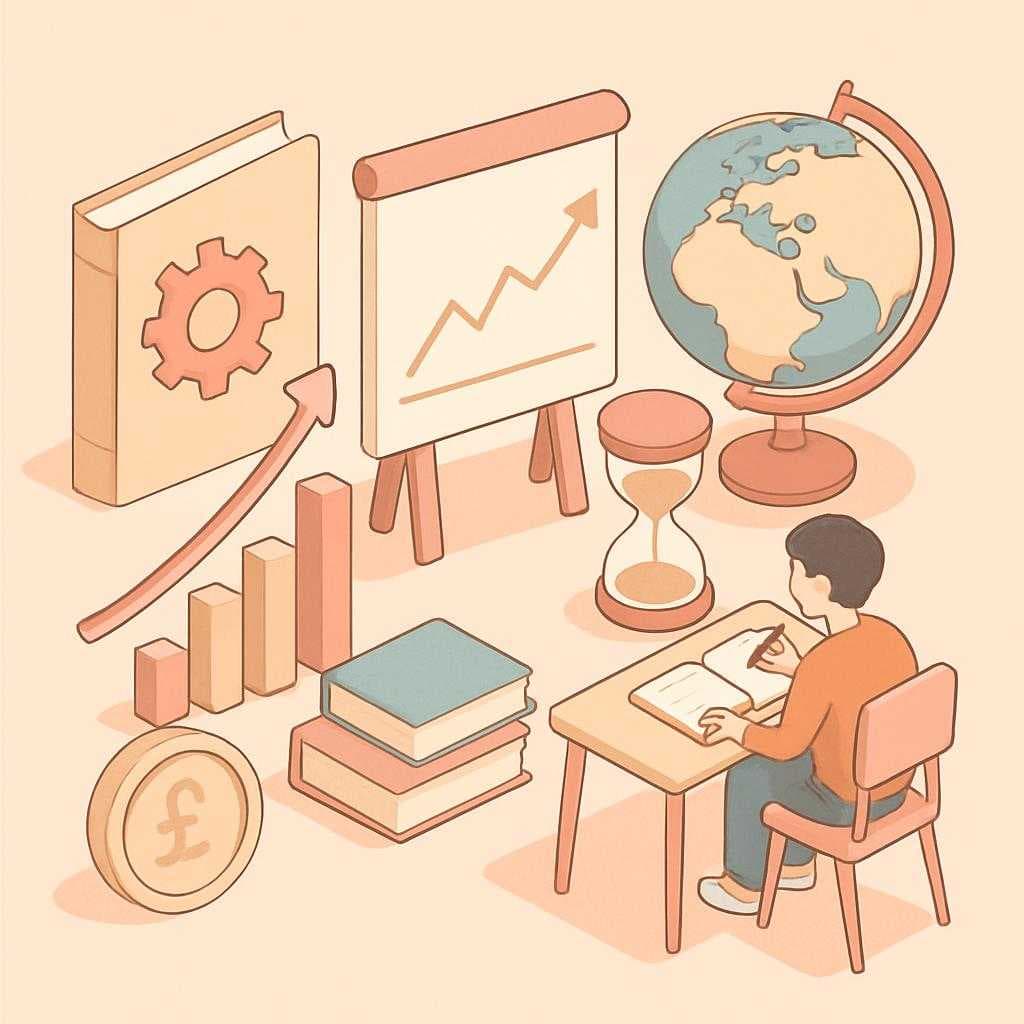Mastering A-Level Economics: Navigating Economic History for Exam Success
Summary: Dive into the world of economic history and discover how mastering this subject can elevate your A-Level Economics performance. Explore the nuances of UK exam boards including AQA, Edexcel, and OCR, and learn how historical economic understanding can bolster your exam success.
Understanding the economic history is akin to having a roadmap that guides you through the complex terrain of A-Level Economics. As a crucial component of the curriculum, economic history not only enriches your knowledge but also enhances your ability to tackle exams set by UK boards like AQA, Edexcel, and OCR.
Why Economic History Matters
Economic history provides context. It allows you to see the bigger picture and understand why economies function the way they do today. By delving into historical economic events, such as the Great Depression or the 2008 financial crisis, you can better comprehend contemporary economic policies and their implications. This understanding is vital when addressing essay questions that demand evaluative judgments and critical analyses.
Tailoring Your Study Techniques
For AQA Students:
AQA often emphasizes the application of historical context in economic analysis. Focus on understanding the causes and effects of significant economic events and how they shaped current economic theories. This approach will prepare you for the synoptic paper, where applying historical knowledge can earn you higher marks.
For Edexcel Students:
Edexcel exams frequently require students to draw on historical examples to support arguments in essays. Familiarize yourself with key economic events and their long-term impacts. Practice incorporating these examples into your essays to provide depth and context to your arguments.
For OCR Students:
OCR assessments often test students on their ability to analyze and evaluate economic policies within a historical framework. Ensure you can discuss the evolution of economic policies and their effectiveness over time. This will be particularly useful in data response questions where historical insight can add a layer of sophistication to your answers.
Tips for Incorporating Economic History
-
Create a Timeline: Visualize major economic events and their impacts on a timeline. This will help you remember key dates and understand the cause-and-effect relationships between events.
-
Compare and Contrast: Analyze different historical periods and economic policies, noting similarities and differences. This technique is useful for developing critical thinking skills.
-
Relate to Current Events: Connect historical events to current economic issues. This will not only solidify your understanding but also prepare you for potential questions on contemporary economic challenges.
By mastering economic history, you arm yourself with the analytical tools needed to excel in A-Level Economics. With a deep understanding of the past, you'll be well-equipped to navigate the demands of AQA, Edexcel, and OCR exams and achieve academic success.
